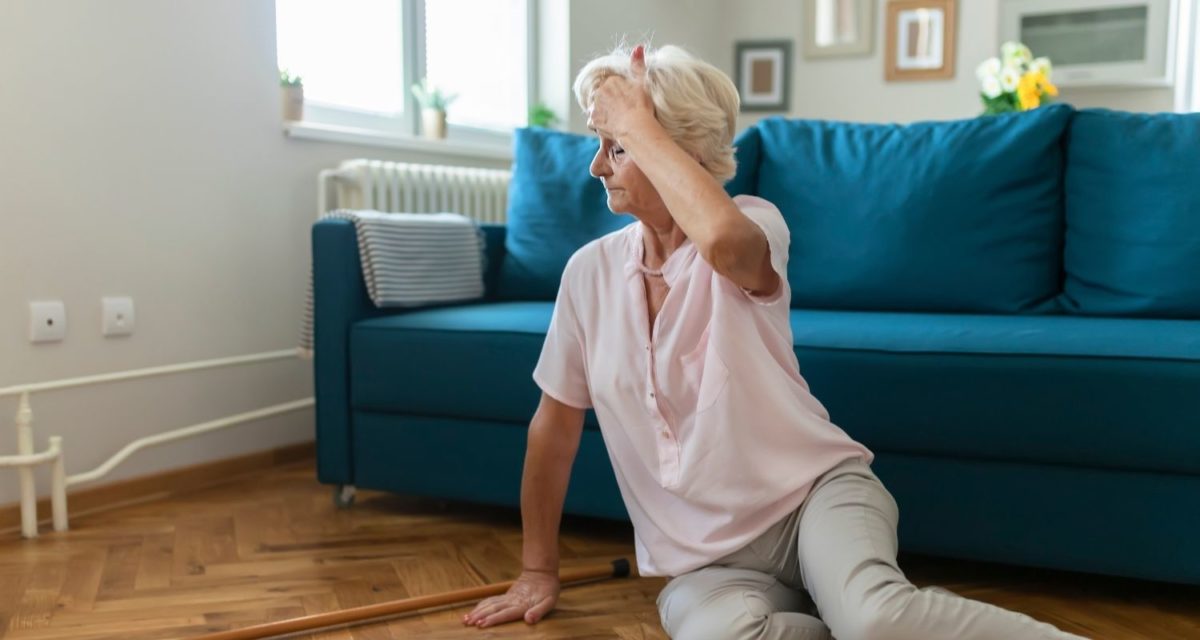
Treating Hearing Loss Can Prevent Falls
When we are younger, and we experience a fall, we are more likely to be able to get right back up without any complications. However, as we age falls can be devastating, leading to broken bones and mobility issues. Older adults are more likely to break bones in falls due to osteoporosis, causing more fragile and porous bones. In addition, complications from surgeries cause healing to become more of a challenge as we age. It’s important to do what we can to keep ourselves from suffering from falls. Did you know that people with hearing loss can be more than three times more likely to experience falls?
Connecting Hearing Loss and Falls
Research shows that hearing loss can lead to a significantly higher risk of falling. For older adults, hearing loss becomes more common due to changes in the inner ear. Age-related hearing loss, also known as presbycusis, affects one in three people over the age of 65 and one in two people 75 years or older. Addressing hearing loss early is suspected by many to be a major contributing factor toward preventative care and avoiding accidents that could lead to hospitalization or even death.
Studies on Hearing Loss and Falling
One prominent 2012 study from Johns Hopkins University explored in-depth, the relationship between hearing loss and falls by analyzing data provided from a national 3- year survey. The survey cross-referenced hearing exam results with histories of falling in 2,017 participants, between the ages of 40-69. The results showed that those with even a mild hearing loss, were three more times likely to have fallen when compared to those with no significant hearing loss. The researchers determined that for every additional 10-decibel increase in hearing loss, the risk of falling escalated by 1.4 times!
Meanwhile, a separate more recent 2019 study from the University of Michigan study examine results from 115,000 participants, with and without hearing loss, 66 years and older. The study revealed that 13% of participants experienced a fall within three years of their hearing loss diagnosis in comparison to 7.5% of people without hearing loss. Both studies illuminate the importance of identifying and treating a hearing loss to prevent falls.
Reduced Spatial Awareness
While we can identify a significant connection between hearing loss and falls the relationship is not immediately clear to the majority of people. Researchers have many theories as to why this relationship may be so solid. One of the major theories has to do with spatial relationships which are compromised due to hearing loss.
While our hearing helps us communicate with the people around us, it has several other functions which are essential to our well-being. Hearing with both ears helps us to be more aware of our environment, including the localization of sounds. We can hear vehicles approaching from behind, and the sound of a dog’s collar which tells us they are nearby. Our hearing helps us determine the direction, proximity, and approaching the speed of the sounds in our world and helps us navigate among and around them. When hearing loss goes unaddressed it increases the risk of accidents and falls because we are less likely to be aware of this auditory information.
Cognitive Overload
Another prominent theory around hearing loss and falls is the cognitive overload that hearing loss can cause on the brain. As we lose parts of words and words in sentences our brain is forced to fill in the blanks which can be incredibly exhausting. When we are forced to focus on hearing it takes our concentration away from other important functions such as balance and awareness of our surrounding world.
Challenges with Balance
In addition to hearing the inner ear also holds our vestibular system, which is responsible for maintaining balance. Damage to the inner ear which causes hearing loss can also affect the vestibular system’s ability to send information concerning head motion, spatial orientation, and movement to the brain which helps keep us upright.
Prevent Falls by Treating Hearing Loss
If you suspect you have a hearing loss it is important to schedule a hearing exam as soon as possible. While most cases of hearing loss are irreversible it can effectively be treated using hearing aids. With increased amplification, hearing aids can help us be more aware of the world around us, reduce cognitive strain and keep us upright. Schedule a hearing exam with us today!
